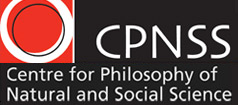Can free will exist in a deterministic universe? In “Free Will, Determinism, and the Possibility of Doing Otherwise”, Christian List argues that it can.
A problem of determinism at different levels
Take an everyday process, like making a cheese sandwich. This process can be described in more than one way, using terms from different vocabularies and theories. For example, the intuitive human level of description may go something like this: I am hungry, I like cheese, I also like bread; in order to satisfy my hunger I am going to place some cheese between two slices of bread and I am going to eat it.
Now, if we think on a different level, a level whose vocabulary does not include terms such as “cheese”, “bread”, “hunger” and “liking”, then our description of this same process will sound very different. For example, if we were to describe this event at the level of biology we would most likely make use of terms such as “protein”, “carbohydrate”, “enzyme” and we would describe how such things interact in the process of my creation of a cheese sandwich. Moving down to another level we may describe the process in terms of changing “molecules” and “bonds”, or even “quarks” and “electrons”.
Most people, including scientists, are prepared to accept that at certain levels of physical description the universe is deterministic: when an event, e, at time t is correctly described in terms of, say, the locations and movement of particles, then at a later time t’ only one event, e’, is possible. So far, so good.
However, if the same process is correctly described at what I’ve just referred to as “the intuitive human level”, then things become a little more controversial: if event e is described in terms of hunger and a predilection for cheese sandwiches, then it’s not nearly as obvious that event e at time t will lead inevitably to event e’ at time t’. I may instead decide, either through health concerns or frugality, to pick up a packet of oatcakes, or even to go hungry. In fact, some might say that it is the very possibility of doing otherwise in a given situation that constitutes free will, and it is this that gives grounds to the claim that we are responsible for our actions.
We therefore have a tension: although we are happy to describe a system as deterministic at one level, our notion of free will requires exactly what determinism denies – the possibility of doing otherwise. It looks as if we’re going to have to give up on one or the other: either determinism is false, or free will is an illusion.
How determinism and free will can still live together
According to Christian List’s article “Free will, determinism, and the possibility of doing otherwise” (preprint / article), this choice isn’t mandatory; we can coherently describe a system as deterministic at one level whilst still retaining the possibility of alternative future events at another level.
List’s observation is that, depending on the way in which different levels of description relate to one another, a deterministic future at some (lower, physical) level does not imply a deterministic future at the (higher, coarse-grained) level that matters to questions of the free will of human agents. What makes such a relationship possible are the combined properties of supervenience and multiple realisability:
- Supervenience: There cannot be variations in the agential state without variations in the physical state; but,
- Multiple realisability: There is typically more than one physical state that gives rise to the same agential state; not every variation in the physical state needs to bring about a variation in the agential state.
The requirement of supervenience allows us to make sense of how human agents are composed of lower-level physical parts. Multiple realisability allows us to make sense of how the human agent level can be indeterministic and allow for free will, even when the lower physical level is deterministic.
To see why, let’s return to our example. Some physical-level description of my making a cheese sandwich involves proteins, carbohydrates, and neural impulses in my brain. There may not be any scope in such a description, when fully specified, for any more than one possible future event; it may be a deterministic level of description. Supervenience also holds, in that my higher-level state (as an agent with a cheese sandwich) can only change if the lower-level physical description changes as well.
However, this higher-level state will make use of coarse-grained – i.e. less physically specific – terms such as “cheese” and “hunger”. But here’s the important part: there are multiple different physical level states giving rise to the same agential level state. If my sandwich used a different slice of cheese, there would be very different molecules, but it would still be a cheese sandwich. That’s what Multiple Realisability means. But if that’s the case, then there are also multiple possible future physical states that could follow the same agential level state.
In particular, suppose that at the higher agent-level it’s true that, “I am a hungry agent with some bread and cheese.” This really refers to an enormous set of different physical-level descriptions, and therefore an enormous set of possible future outcomes. Those future outcomes could include not only a cheese-sandwich-eating event, but also the event in which I put down the cheese sandwich and instead open a packet of oatcakes. In other words, we can have indeterminism at the agential level in spite of determinism at the physical level.
If List’s arguments are sound, then it appears that we are not forced to choose between free will and determinism after all; we can have our cheese sandwich and eat it.
By Ewan Rodgers
Christian List is a Professor of Political Science and Philosophy in the LSE’s departments of Government and Philosophy, Logic and Scientific Method. ‘Free Will, Determinism, and the Possibility of Doing Otherwise,’ has been published at Noûs. A publicly accessible preprint of the article is available here.





Christian List is right to keep human agency in the picture, but his model doesn’t solve the problem of mental causation, i.e. how is it that the agent can physically cause what happens at a lower level? To take the cheese sandwich analogy, we can accept that many different combinations of molecules could be called a cheese sandwich. But if I change the name of my cheese sandwich and call it a bacon sandwich, that won’t change its atoms into bacon.
I still think there is a choice to be made between the human-agency view of the world, and a deterministic one. Older philosophical traditions took interest in causes other than physical ones, e.g. Aristotle’s material, formal, efficient and final causes.